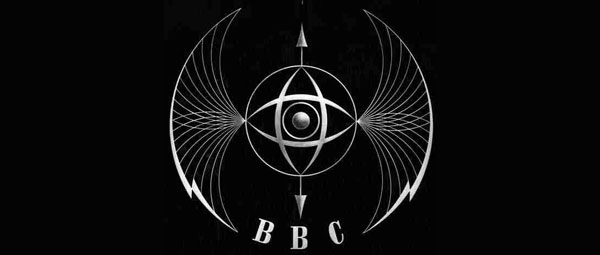Media timeline
Technologies
1924 Feb
John Logie Baird sends rudimentary pictures over short distance
1925 May
Baird gives first public demonstration of television
1926 Jan 27
Baird demonstrates TV by wireless transmission to the Royal Institution, London
1932 Aug 22
BBC starts 30-line tests using Baird's system. Only one person's face could be shown at one time and the sound and images often got out of sync with each other or the images turned into meaningless dots and lines. You could only see the picture if you were within 260 metres of the transmitter.
1936 Nov 2
Start of Marconi's 405-line high definition service. The first programme was a variety show called 'Here's Looking At You' which was shown for 30 minutes each day. The cast had to repeat the show each day as there was no way of saving or recording the show.
Gentlemen, you have now invented the biggest time-waster of all time. Use it well
1949 Dec
BBC Television service begins to spread outside of London.
1958 Apr
BBC show the first videotape broadcast. Until this point every show was live and nothing could be recorded to show repeats or to keep for posterity.
1962 Apr
The first video tape slow-motion replay
1962 Jul 11
First transatlantic satellite broadcast.
1973
Teletext system demonstrated by BBC.
1974
Video cassette recorders go on sale
1989 Sep
First official NICAM digital stereo sound transmissions, by ITV
2006 May
Start of high definition service.
2007 Oct 17
First analogue switch-off: BBC2 signal at Whitehaven, Cumbria
2007
iPlayer starts
Channels
1927 Jan 1
The BBC becomes a public corporation
1955-56
Start of Independent Television (commercial TV) . Until this time there was only one TV channel, BBC. Adverts started to fund the new channel.
1964 Apr 20
BBC2 starts broadcasting
1967 Jul 1
Start of colour transmissions on BBC2.
1969 Nov 15
Colour service starts on ITV and BBC1.
1978
Opening of BBC's combined film and video tape archive, and end of junking policy. Until this time the BBC just didn't think people would be interested in seeing the programmes again and it was expensive to store the tapes. Some old TV shows have only been saved and restored because people stole them out of skips.
1982 Nov
Start of Channel 4
1983 Jan/Feb
Start of breakfast television by BBC and ITV
1989 Feb
Start of domestic satellite services by Sky Television
1996 Mar 15
BSkyB's first pay-per-view event: boxing match from Las Vegas
1997 Mar 30
Start of Channel 5. Millions of video recorders needed retuning in order to prevent interference
1998 Oct 1
Digital satellite service starts.
1998 Nov 15
ONdigital, the world's first digital terrestrial service starts, including widescreen broadcasts
2001 Jun
BBC's first digital interactive programme.
2002 May
Closure of ITV Digital (formerly Ondigital)
2002 Oct 30
Opening of Freeview digital terrestrial service to replace ITV Digital
Social
1937 May 12
First outside broadcast: King George VI's Coronation procession
1939 Sep 1
TV broadcasting stops because of World War II
1946 Jun 1
TV licence fee is introduced
1946 Jun 7
TV broadcasting starts again after the war
1953 Jun 2
The Queen's Coronation is seen by about 27 million viewers on TV. 21 cameras were used
1954 Jun 6
Britain linked to Eurovision, the international television network which later started the Eurovision Song Contest and the Eurovision Dance Contest.
1954 Jul 5
Daily news bulletins start
1954
George Cowling becomes the first on-screen weather presenter
1957 Mar 3
Eurovision Song Contest broadcast from Frankfurt am Main, Germany. This was the second of the annual contests, but the first one that Britain competed in
1958
There are now more households with TV sets and radios than households with just radios and no TV.
1969 Jul 21
BBC and ITV night-time audiences watch man's first steps on the moon.
1972
Removal of restrictions on broadcasting hours. Until this time TV channels were not allowed to broadcast at certain times like overnight or at the weekend. When shows were not being broadcast a testcard, clock or spinning globe was shown instead.
1976
The number of colour TV sets now outnumber black and white TV sets
